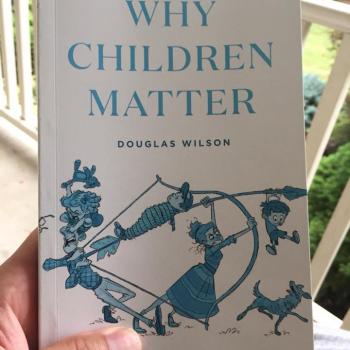In just three short weeks I will be presenting a paper at The Academy of Philosophy and Letters at the academy’s annual conference entitled, Against the Recreational Household.
(If you’re in the Philadelphia area the first weekend in June, drop by Villanova and say, hello.)
Generally, when I write anything, from a sermon to a story, I begin with a very rough outline, and then I enter a stream of consciousness style of composition. Later I take my ramblings (usually 3 or 4 of them) and I look for the themes that emerge. Those tend to be what will hold the text together. Then comes the real work of writing–cutting stuff out, filling in the gaps, and so forth.
What follows is the first jaunt. In the days ahead I’ll add other rambles. The final paper may not look much like what you see here, but I think what follows has some good stuff to work with.
Once upon a time the economy lived at home. Households were for work and the people who lived in them were put to work.
First, there were family farms, and in those days all farming was family farming, even if it was sharecropping. Fathers led the way and wife and children, and sometimes grandparents and hired hands, all joined in and each did what he could. And neighboring families often worked together pitching in at planting and harvest. There is that marvelous scene at the end of The Seven Samurai when the bandits have been defeated and the work of the samurai is done. The whole village is in the rice paddies, planting. Some men are beating time on drums and the whole village is singing. Women are ankle deep in the muck and children are toting and fetching at a run. It is an image of men and women and children working together harmoniously as is never seen in the modern world.
And it wasn’t just farmers who worked at home. Artisans did too. Bakers, smiths, cobblers all had their storefronts, but those hid workshops in the back. And upstairs was for sleeping, and eating, and playing, all those things that we now call family time.
These spaces reveal that is wasn’t all work. But work and leisure were separated more by time than by space for most people. There were the rhythms of the day, and the year, and for the children of Abraham, especially the week. For them one day in seven was for attendance at the house of God to perform the liturgy, the work of the people, and the offerings were brought in, and the children sat down at the Lord’s table to eat spiritual food with gratitude.
It wasn’t heaven. There were rivalries, impieties, rebellious sons, unfaithful wives, and so forth. But today we have those in great abundance, so let’s not dismiss what they had that we’ve lost.
But in the beginning it was all there—the whole economy. I put it this way because an economy is more than work, it is the order of the household. The word, as many of you know, is a compound word that comes to us from the Greek, oikos, meaning house, and nomos, meaning law. It is the law of the house, a law to be observed by all the members of the house and overseen by the paterfamilias, the father of the family.
But almost no one thinks of an economy in these terms today. For most people that economy doesn’t live at home, it makes its abode in the open market. Gross Domestic Product has almost nothing to do with domiciles, except new housing starts by builders, of course. And if the economy has anything for houses to do, it is largely eating, sleeping, playing, and propagating the race. And more and more, even those things are done outside the home—and in the latter case, not at all. The household has gone from a productive enterprise to what Christopher Lasch has called a haven in a heartless world.
—
So there you have it. Needs work, but it’s a start.
By the way, my book Man of the House was reviewed over at The Imaginative Conservative. Since it is a favorable review I think it makes a marvelous read. Why not jump over there and see if you agree? (Of course you will.)
Here’s that scene from Seven Samurai I mentioned:













